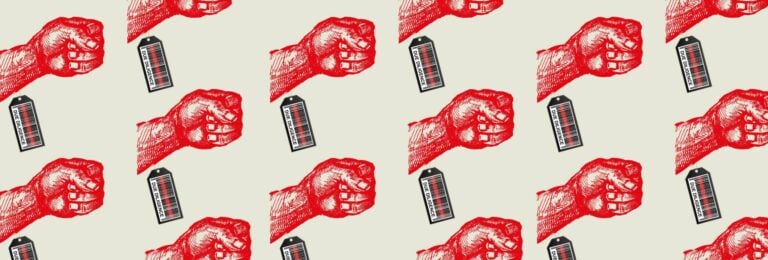Apple Manufacturer Foxconn Makes Employees Sign ‘No Suicide’ Pact
Workers at Foxconn’s Chengdu factory, which manufactures Apple products, must reportedly(opens in new window) sign a pledge promising they will not commit suicide.
Foxconn is notorious for the spate of suicides(opens in new window) that occurred last summer. Though large nets were attached to catch workers trying to commit suicide, a new report(opens in new window) by the Center for Research on Multinational Corporations and Students & Scholars Against Corporate Misbehavior (SACOM), shows that conditions at these facilities are still incredibly poor. The Center is a nonprofit researching the activities of multinational corporations, while SACOM is a non-profit advocacy group for workers’ rights.
According to Shanghaiist(opens in new window) , the pact against suicide says it will provide "a reasonable pension" should employees kill or harm themselves (see the letter at Shanghaiist(opens in new window) ):
| The way the company deals with employee accidents is based in national law and is in accordance with regulations, as well as the principles of the corporation and humane care. As for the accidents to employees (including suicide, self-mutilation, etc.), the company cannot pay more than what is regulated, but will actively cooperate with government departments according to the laws of compensation and will work out a reasonable pension. |
Employees must also agree that "in order for the company to protect me and others, it can send me to a hospital should I exhibit abnormal physical or mental problems." Some workers allegedly view the provision as license for Foxconn to institutionalize them(opens in new window) if it sees fit.
The letter is also said to include a promise that the families of workers who do commit suicide will not seek more than minimum legal demands:
| In the event of non-accidental injuries (including suicide, self mutilation, etc.), I agree that the company has acted properly in accordance with relevant laws and regulations, and will not sue the company, bring excessive demands, take drastic actions that would damage the company’s reputation or cause trouble that would hurt normal operations. |
According to the report, workers are routinely overworked, given only scarce breaks for food amidst abysmal living conditions. It found that employees work 174 regular hours each month, in addition to overtime: while the legal limit for overtime is 36 hours a month, workers routinely work 80 to 100 hours overtime in continuous shifts that do not allow for meal breaks.
Apple, which did not cut ties with Foxconn after determining the company had acted appropriately to prevent further suicides, sold 15 million iPads in 2010, and has already sold close to 5 million this year. In the first quarter of 2011, the company posted a record high in revenue of $26.74 billion. In a call, Apple COO Tim Cook said that the company had sold every single iPad it produced during the quarter.
"The team commended Foxconn for taking quick action on several fronts simultaneously, including hiring a large number of psychological counselors, establishing a 24-hour care center, and even attaching large nets to the factory buildings to prevent impulsive suicides," Apple said in a Supplier Report(opens in new window) , going on to add that "Foxconn’s response had definitely saved lives."
Apple has cut ties with other factories for violating overtime and child labor laws, and gauged the conditions at its various facilities for its Supplier Report. In a statement responding to these recent allegations, the company said simply:
| Apple is committed to ensuring the highest standards of social responsibility throughout our supply base. Apple requires suppliers to commit to our comprehensive supplier code of conduct as a condition of their contracts with us. We drive compliance with the code through a rigorous monitoring program, including factory audits, corrective action plans and verification measures. |
UPDATE:
While Foxconn maintains factories in Shenzhen, Chengdu, and Chongqing, Chengdu’s sole buyer is Apple. In addition to Apple, HP, Nokia and Dell also buy supplies from the Shenzhen factory, while Chongqing primarily supplies HP. Conditions described in the article, as taken from the report, are uniformly harsher in Chengdu than in the other locations. Additionally, the report points out that while workers in Shenzhen (where the suicides mentioned above occurred) received pay raises, those in Chengdu and Chongqing did not.
Content Copyright 2011 Huffington Post.com used with permission.
Partners
Related news
-
 The hidden human costs linked to global supply chains in ChinaPosted in category:News
The hidden human costs linked to global supply chains in ChinaPosted in category:News Joshua RosenzweigPublished on:
Joshua RosenzweigPublished on: -
 Major brands sourcing from China lack public policies on responsible exitPosted in category:News
Major brands sourcing from China lack public policies on responsible exitPosted in category:News Joshua RosenzweigPublished on:
Joshua RosenzweigPublished on: -


